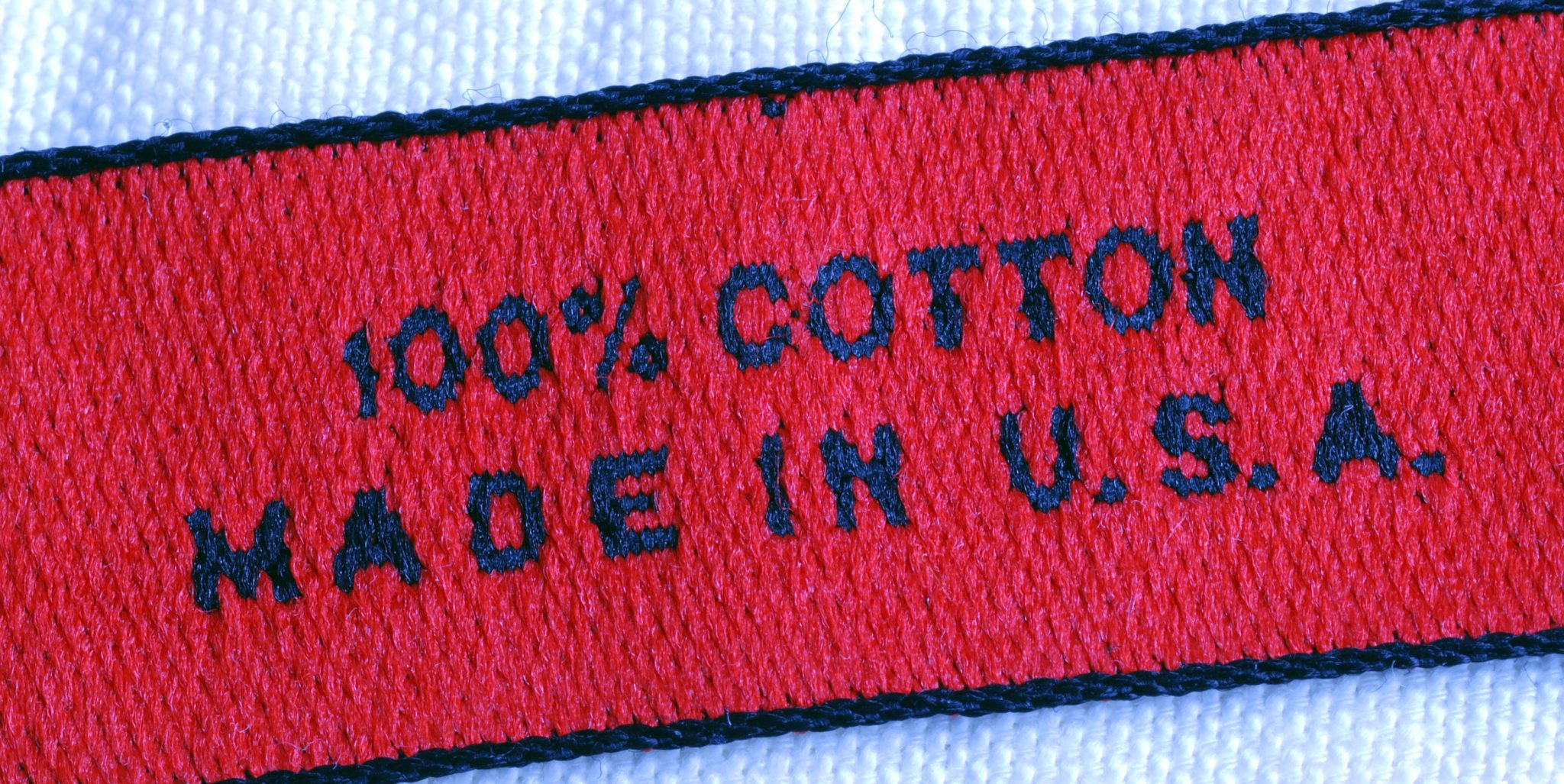Most people want to do right by Mother Earth. Sure, they might grouse about taking out the recycling, or they may complain about restricted watering for their lawns. However, nobody actually wants pollution or disappearing waterways. They just want some help with making good choices. [quote]
The Cotton LEADSTM initiative, now celebrating its one-year anniversary, is providing just that kind of help to the industry, so consumers, in turn, can feel confident about the choices they make when buying apparel. Cotton LEADSTM addresses accountability with regard to environmentally sensitive issues. The program was started by Australian and U.S. cotton industries, including Cotton Incorporated, and now counts nearly 230 partners who are committed to responsible cotton production. Its core principals are consistent with sustainability, the use of best practices and traceability in the supply chain.
Fruit of the Loom® was one of the initiative’s early partners. Robert Parsons, Fruit of the Loom’s vice president, engineering, says the company has long been dedicated to eco-practices.
“Participating in the Cotton LEADSTM program shows our customers we are serious about this commitment,” Parsons says. “We are proud to be a pioneer in this effort.”
Companies are right to consider their customers’ interest. Here in the U.S., the majority of consumers are concerned about environmental issues like air quality (82%), water quality/scarcity (80%) and global warming/climate change (71%), according to the Cotton Incorporated 2014 Environment Survey.
On the other hand, just 50% of consumers say environmental friendliness is an important factor to purchasing apparel and only 38% are likely to seek out environmentally friendly clothes, the Environment survey shows. Instead, fit (98%), comfort (97%), quality (95%), and price (94%) top the list in importance. However, nearly 7 of 10 consumers (69%) would be “bothered” if they found an apparel item they purchased was not environmentally friendly, and 6 in 10 would hold businesses most accountable, saying they would blame either the manufacturer (39%), brand (15%), or store (6%).
Mark Messura, senior vice president, global supply chain marketing, at Cotton Incorporated, says the first phase of the Cotton LEADS™ program was aimed at raising awareness of the significant environmental gains already achieved by cotton growers in Australia and the U.S., as well as their commitment to continual improvement. He points to the stringent national and local-level regulatory environment in both countries, combined with transparency of these practices and third party verification vis-a-vis cotton identification systems that ensure traceability from farm to manufacturer to validate the claims.
“Globally, cotton competes with synthetic fibers, and as such, cotton needs to prove itself to retailers and brands who demand responsible supply chain partners,” Messura says. “Cotton fiber is the first ingredient in the textile supply chain for most companies and these companies need to have confidence that cotton can be responsibly produced.”
Parsons says it’s been a “great” first year with Cotton LEADSTM.
“Through collaboration with members, we have identified a number of opportunities to better serve our customers, help insure the sustainability of our supply chain and implement plans for continuous improvement,” he says.
Fruit of the Loom® is emblematic of Cotton LEADSTM effectiveness, with its efforts to date in sustainability receiving wide recognition. The Environmental Protection Agency awarded the company its Excellence in Greenhouse Gas Management award, and Fruit of the Loom® also was awarded Energy Star certification in its corporate offices in Bowling Green, KY. Two renewable energy facilities in Honduras are underway.
Cotton LEADSTM partners also include Brooks Brothers and Target, two companies that have been working to increase their eco-sensitive practices. This year, Newsweek ranked Target 194th out of 500 on its U.S. Green Ranking and 284th of 500 on its World Green Rankings. Target is also a member of the Dow Jones Sustainability Index (DJSI) World Index.
When Brooks Brothers teamed with the Cotton LEADSTM program, Joe Dixon, senior vice president of production and technical services, explained why joining was a good fit for the retailer.
“Brooks Brothers is enthusiastically committed to sustainable sourcing,” Dixon said. “Because cotton continues to be a mainstay of Brooks Brothers’ product offerings, we require significant amounts of high-quality, responsibly produced cotton fiber. We look to a range of opportunities that, like the Cotton LEADS™ program, can demonstrate best practices, reduced environmental impact, and make a commitment to ongoing improvement and traceability.”
This commitment to sustainable cotton production is in keeping with the high regard consumers already have for the fiber. More than 9 of 10 consumers (92%) say cotton is safe for the environment, well above those saying manmade fibers like polyester (60%) and rayon (59%) are safe, according to the Environment Survey. Nearly 8 of 10 consumers (77%) say “100% cotton” claims are influential to their apparel purchases, followed by “made in the USA” (68%) and “natural” (61%). Additionally, 72% say natural fibers are better for the environment than synthetic fibers.
In November, Messura and the United States Fashion Industry Association will host a webinar on the Cotton LEADSTM program, walking interested participants through the program, as well as discussing Cotton Incorporated’s work to deliver responsible cotton production.
“It’s not just about what’s happening on the cotton farm now, it’s about the future challenges to cotton in manufacturing and even at the consumer level,” Messura says. “The Cotton LEADS™ program is more than just an agricultural production effort; it’s a deliberate effort to make sure that cotton is the most responsible fiber at every stage.”
